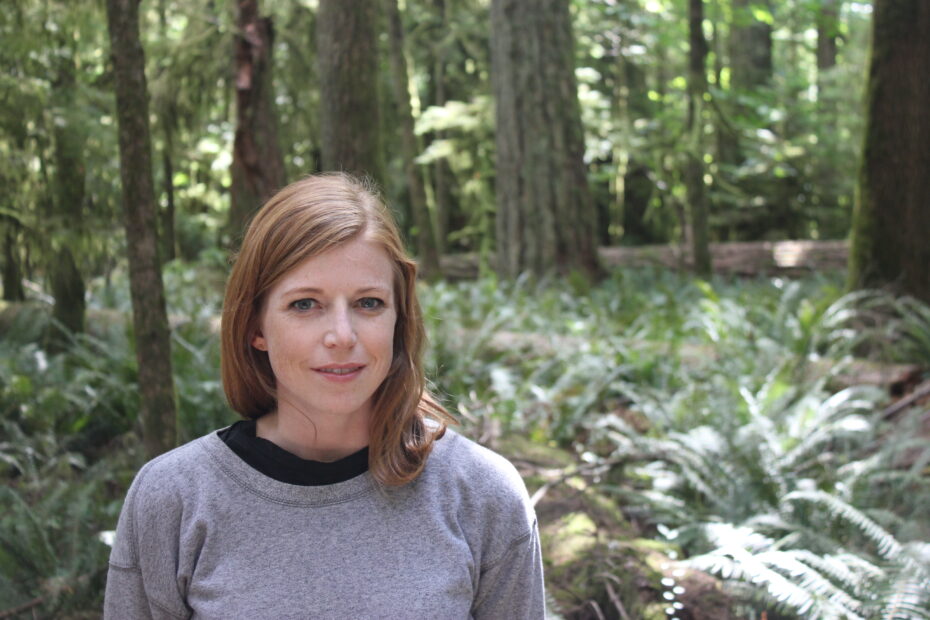
As government officials, business leaders, scientists, and civil-society representatives gather in Glasgow this week for a crucial UN climate summit, a McGill research initiative will be co-hosting an official side event focused on an issue that has received little attention so far: the effects of climate change and adaptation policies on disabled people.
Although persons with disabilities constitute 15 per cent of the world’s population and are identified in the preamble of the Paris Agreement as one of the groups most acutely affected by climate change, they have been largely excluded from decision-making processes and outcomes under the United Nations Framework Convention on Climate Change (UNFCCC).
The Disability-Inclusive Climate Action Research Program (DICARP), based at McGill’s Faculty of Law, brings together scholars and activists from around the world to generate and share knowledge on how efforts to combat the climate crisis can be designed and implemented in ways that respect, protect, and fulfill the rights of disabled people. The initiative is led by the Centre for Human Rights & Legal Pluralism and the Canada Research Chair in Human Rights, Health, and the Environment, held by Prof. Sébastien Jodoin. (Funding support for DICARP is provided by the McGill Sustainability Systems Initiative and the Social Sciences and Humanities Research Council of Canada.)
The COP26 side event – co-hosted by DICARP and organizations including Human Rights Watch, the International Disability Alliance, Inclusion Scotland, and the League of Women Voters – will be the first in the history of the multilateral climate talks to focus on disability.
DICARP Senior Research Associate Katherine Lofts will be presenting at the meeting in Glasgow on Nov. 5. She fielded questions from the Reporter ahead of the event.
How did this side event come about?
This side event is the result of a growing collaboration between DICARP and various Disabled People’s Organisations (DPOs) and other groups working to ensure that the rights of persons with disabilities are respected, protected, and fulfilled in all climate change mitigation and adaptation actions. As the first event of its kind at the UNFCCC, it’s a really important moment and it coincides with the first-ever delegation of persons with disabilities attending the climate change conference.
What issues will it address?
The event will explore the challenges, opportunities, and pathways for promoting disability-inclusive climate action and the rights of persons with disabilities at the international, national, and local levels, including ways to make climate mitigation and adaptation policies more effective, accessible, and equitable. It will feature a range of speakers focusing on various aspects of disability and climate change, including presentations on disability and climate action in the Scottish context; a case study of the impact of extreme heat on persons with disabilities in British Columbia; perspectives on the climate crisis from Indigenous persons with disabilities; and an analysis of what governments and civil society must do to ensure disability-inclusive climate action.
What messages do you hope to deliver in your talk?
My presentation will share the results of a forthcoming DICARP report on disability inclusion in national climate commitments and policies. The report provides a snapshot of where countries stand with respect to the consideration and implementation of the rights of persons with disabilities in their mitigation and adaptation plans and policies. Spoiler alert: there’s a lot of work to be done.
What do you hope will be the outcome of this event?
Our hope is that this event will draw attention to the crucial importance of including persons with disabilities in all aspects of climate change action, building bridges between the disability and climate change communities. We also want to centre the voices of disabled persons, and highlight the valuable contributions that they have to make in addressing the climate crisis. And of course, we hope this event will help galvanize the government officials, negotiators, and policy-makers attending the climate conference into taking action to ensure a more just and equitable future for all.
To learn more about disability and climate change, listen to this BBC interview with Prof. Sébastien Jodoin.

The first stone is laid by the COP26 organizers who have not taken accessibility into account … that is already a worrying fact and it shows the degree of involvement and concern for people with disabilities in general. So far so good 🙁